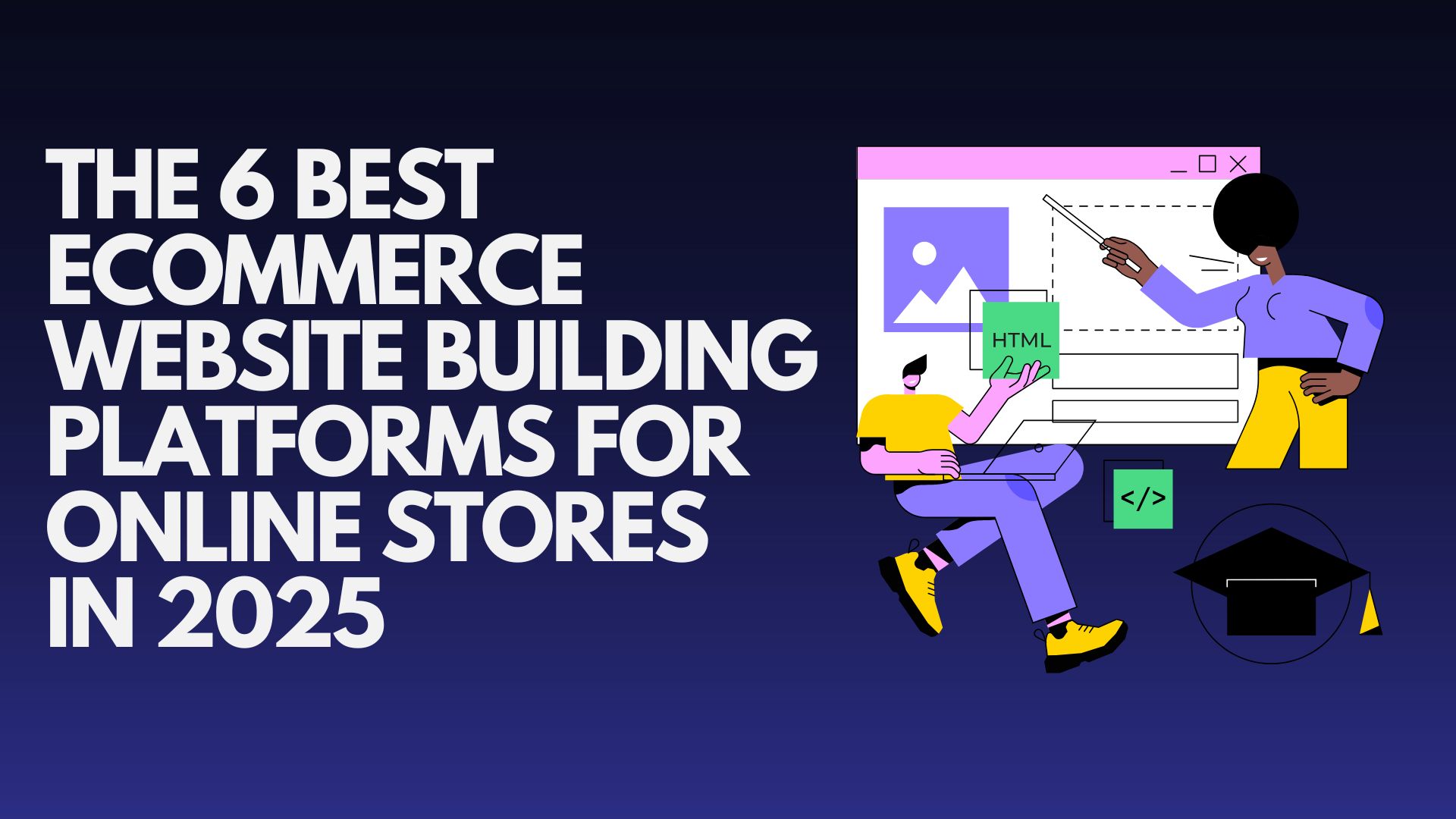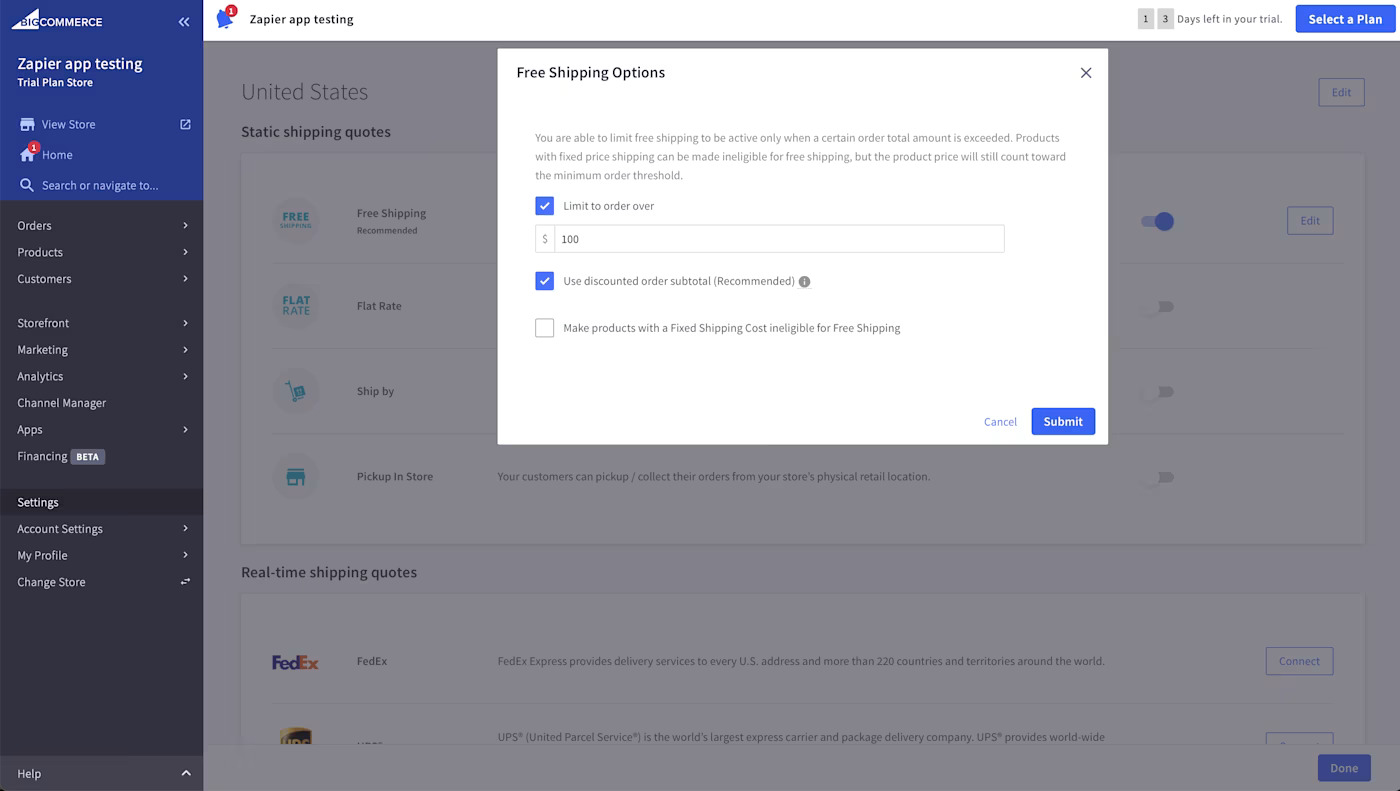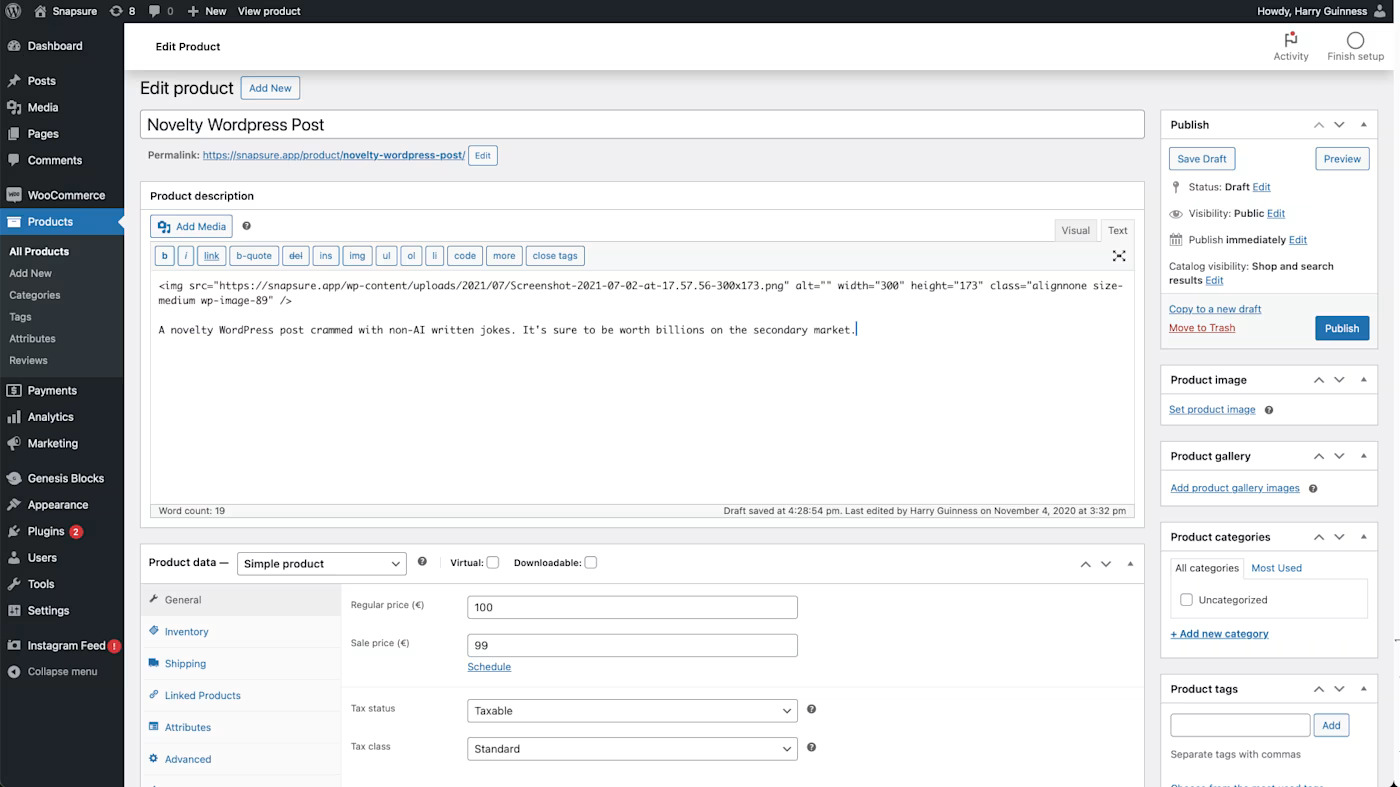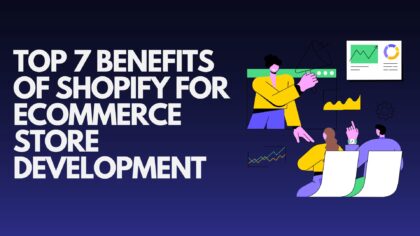The 6 Best eCommerce Website Building Platforms for Online Stores in 2025

Online sales are rapidly increasing, with nearly a quarter of retail sales expected to occur online by 2026. If you’re running a small business, having an online store is essential. Fortunately, with the right e-commerce tools, setting up an online store is quick and easy. A good website builder allows you to list products, process payments, and manage shipping from anywhere—whether in your store or home office.
Automate your e-commerce with ease. After researching over 50 e-commerce platforms, I selected solutions tailored to small and medium-sized businesses, particularly those new to online sales or physical product selling. While these platforms can work for other types of businesses, if you’re selling low-volume digital products or running a large enterprise, you might need a more specialized solution. However, there are also options at the end of the list for smaller creatives and large enterprises.
Table of content
-
- Why Your Small Business Needs an Online Store
- Why the Right Platform Makes All the Difference
- What Makes the Best eCommerce Website Builder for You?
- How to Choose the Right eCommerce Website Builder
- Overview of the Best eCommerce Website Builders
- Best eCommerce Website Builders for Specific Needs
- E-Commerce Solutions for Makers and Creators
- Enterprise-Level eCommerce Solutions
Why Your Small Business Needs an Online Store (And How You Can Build One Easily)
Let’s be real—online shopping isn’t just the future; it’s happening right now. By 2026, nearly 25% of all retail sales will be online. If you’re running a small business, having an online store isn’t optional anymore—it’s absolutely essential.
But here’s the good news: building your own online store has never been easier. With the right tools, you can:
- Show off your products beautifully
- Accept payments without a hitch
- Manage orders and deliveries like a pro
And the best part? You can do all of this from the comfort of your home or office.
I’ve Done the Hard Work for You
I get it—choosing the right ecommerce platform for your ecommerce website can feel overwhelming. That’s why I’ve taken the time to research over 50 platforms to find the best ones for small and medium businesses. Whether you’re:
- Selling handcrafted, one-of-a-kind pieces
- Scaling your business to reach customers across the globe
There’s a platform out there that fits your needs perfectly.
Why the Right Platform Makes All the Difference
Let’s talk about what really matters. When you’re just starting or growing your online store, the platform you choose needs to be:
- User-Friendly: You shouldn’t have to learn coding or graphic design to get started.
- Affordable: No hidden fees—just clear, honest pricing.
- Scalable: Something that grows with your business as you expand.
My Top Picks for eCommerce Platforms
I’ve narrowed it down to six platforms that are perfect for small and medium businesses. These are easy to use, cost-effective, and packed with features to help you succeed. Whether you’re selling physical products, digital downloads, or both, these platforms make it simple to get started.
Top 6 eCommerce Website Builders:
- Shopify: Best for quick setup.
- Square: Ideal for both online and in-person sales.
- Ecwid by Lightspeed: Great for starting with a free plan and scaling later.
- BigCommerce: Perfect for high-volume sellers.
- WooCommerce: Best for adding eCommerce to an existing WordPress site.
- Wix: Excellent for building a comprehensive website with an online store.
What Makes the Best eCommerce Website Builder for You?
If you’re looking to build an online store, you’re probably asking yourself, “Which eCommerce website builder should I choose?” Honestly, I’ve been there too—it can feel overwhelming with so many options available. But don’t worry, I’ve done the legwork to break it down for you.
The perfect eCommerce platform should be more than just functional for your ecommerce website—it should feel like it’s tailored to you and your business. Here’s what I found after testing, tweaking, and experimenting with the leading platforms:
1. Ease of Use—Because You’ve Got Enough on Your Plate
Let’s face it—you don’t want to spend hours figuring out how to build your site. The best platforms should make it easy for anyone to create a visually stunning, responsive store. If you can set up an email account, you should be able to build a store that fits your brand.
Unfortunately, not all platforms make the cut here. Some are clunky, have outdated themes, or require you to dig into code just to make basic changes. That’s why I focus on tools that make your life easier, not harder.
2. Flexibility to Sell the Way You Want
Whether you’re selling physical products, digital downloads, or both, your platform should have you covered. Think of it this way: it’s not just about listing products—it’s about how easy it is to handle the entire process.
- Sales tax management
- Shipping options (including international)
- Inventory tracking
You deserve tools that work for you, not ones that leave you juggling spreadsheets or scrambling to figure out compliance.
3. All-in-One Management—Your Business HQ
Picture this: one dashboard to manage your products, orders, inventory, and even shipping logistics. No need for additional software or clunky add-ons. The best builders let you run everything from one place, so you can focus on growing your business instead of managing tech.
4. Integration-Friendly Platforms
Here’s the thing: your eCommerce store doesn’t exist in a vacuum. It needs to play nice with tools like your accounting software, CRM, or email marketing platform. Whether you’re syncing with automation tools like Zapier or tapping into built-in features, seamless integration is a must.
5. Transparent Pricing—No Surprises
Nobody likes hidden fees or surprise costs halfway through. I’ve seen platforms that charge thousands of dollars per month for “premium” features, which just isn’t realistic for most small businesses. The right builder gives you clear pricing and delivers real value.
How I Tested These Platforms
To give you the best advice, I rolled up my sleeves and built test stores myself. I explored the signup process, designed basic eCommerce websites, added products, and played around with settings to get a real feel for each platform.
This hands-on experience helped me identify what works (and what doesn’t), so I can help you make an informed decision when choosing the right ecommerce website for your business.
How to Choose the Right eCommerce Website Builder
Choosing the best platform depends on your business needs. Consider the following factors:
- Budget: Start with a basic plan and scale up as needed. Many platforms offer affordable introductory plans, so you can try them before committing.
- Features: Match the platform’s features with your business needs. If you sell both online and in-person, ensure the platform supports that.
- Ease of Use: Choose a platform that matches your comfort level. Platforms should be easy to navigate and set up.
- Support: Opt for platforms that offer accessible customer support if you need assistance.
- Analytics: Strong analytics are essential for tracking sales and improving performance
E-Commerce Website Costs
Pricing for eCommerce platforms can vary based on features, plan levels, and transaction fees for your ecommerce website. Common types of fees include:
- Monthly Fees: Basic plans range from free to a few hundred dollars per month.
- Payment Gateway Fees: Typically 2.9% + $0.30 per transaction, but some platforms charge differently based on volume.
- Transaction Fees: Some platforms charge an additional fee (usually 1-2%) when using a third-party payment processor.
For example, Shopify’s Basic plan costs $39/month with a 2.9% + $0.30 transaction fee.
Overview of the Best eCommerce Website Builders
Here’s a quick breakdown of the best eCommerce website builders for different needs:
| E-Commerce Website Builders | Best For | Pricing | Pros | Cons |
|---|---|---|---|---|
| Shopify | Quick setup | From $39/month, plus 2.9% + $0.30 per transaction | Easy setup, a large user base for strong support | Can get costly with additional apps |
| Square | Selling both online and in-person | Free with Square branding; $29/month for custom branding | Seamless offline-online integration | Limited theme and customization options |
| Ecwid by Lightspeed | Starting small with a free plan | Free for up to 5 products; paid plans start at $19/month | Free plan and cost-effective as you scale | Less feature-rich than Shopify |
| BigCommerce | High-volume sellers | From $39/month for the Essentials plan | Robust features and scalability | Complex for small businesses |
| WooCommerce | Adding a shopping cart to an existing WordPress site | Free for self-hosted WordPress sites; paid plans from $39/month for Woo Express | Highly customizable, seamless WordPress integration | Can be complex for beginners |
| Wix | Building a website and eCommerce store | Starts at $38/month | Powerful site builder, excellent eCommerce features | Less specialized for eCommerce than others |
Best eCommerce Website Builders for Specific Needs
1. Best for Quick Setup: Shopify
Shopify is ideal for businesses needing a fast setup. It offers an easy-to-use platform with a free trial, allowing you to launch a store in minutes. With its large app marketplace, you can scale your store with additional features. However, costs can rise as you add apps.
Shopify Pros:
- Simple to set up and comes with a comprehensive set of tools
- Widely used, providing excellent support and extensive resources
Shopify Cons:
- Can become costly, particularly when adding multiple additional apps
2. Best for In-Person and Online Sales: Square
Square is great for small businesses with both an online and physical presence. It integrates seamlessly with Square’s point-of-sale system, making it easy to manage both types of sales in one place. It’s an excellent option for market vendors or event-based sellers.
Square Pros:
- Seamlessly integrates with Square’s point-of-sale system for smooth transactions.
- Weebly’s website builder continues to offer strong functionality for creating user-friendly sites.
Square Cons:
- Fewer theme options and customization features when compared to other platforms.
3. Best Free eCommerce Platform: Ecwid by Lightspeed
Ecwid is the best free option for businesses just starting out. The free plan allows you to sell up to five products, and you can scale as your business grows. It’s perfect for small businesses with limited product offerings.
Ecwid Pros:
- The free plan offers great value, ideal for small businesses that want to explore e-commerce without any upfront costs.
- The paid plans are reasonably priced and cater to the majority of business requirements.
Ecwid Cons:
- In certain areas, Ecwid may not offer the same level of refinement as Shopify.
4. Best for High-Volume Sellers: BigCommerce
BigCommerce is a robust platform ideal for businesses with large sales volumes. It offers enterprise-grade features like tax management and automated shipping, making it perfect for businesses that need to scale quickly.
BigCommerce Pros:
- A scaled-down version of a well-known enterprise-level ecommerce platform, tailored for small to medium sized businesses (SMBs)
- Offers essential features like shipping and tax settings to help established businesses quickly launch their online stores
BigCommerce Cons:
- May be more complex than necessary for new or small retailers just beginning their online journey
Best for Adding a Shopping Cart to WordPress: WooCommerce
Woocommerce is best for WordPress users who want to add ecommerce capabilities without starting from scratch. It integrates seamlessly with WordPress, offering complete flexibility for store management.
WooCommerce Pros:
- Full flexibility offered by WordPress.
- Widely adopted with extensive support, offering a variety of apps and integrations.
WooCommerce Cons:
- Inherits the complexities and challenges of WordPress management.
Best for Building an Entire Website and Store: Wix
Wix is the best choice if you want to create both a business website and an online store. Its powerful site builder helps you set up a complete website alongside your ecommerce store. It’s ideal for businesses that want a full-featured site without technical expertise.
Wix Pros:
- A leading website builder with excellent ecommerce features
- An ideal choice if you’re looking to create a complete website, not just an online store
Wix Cons:
- Not as specialized in eCommerce as some dedicated platforms
E-Commerce Solutions for Makers and Creators
For creators and small sellers, full-service ecommerce Website Development platforms may be too expensive due to monthly fees and transaction costs. Two alternative options are:
- Selling on a Marketplace: Platforms like Etsy and EnvatoMarket are great for smaller sellers. These platforms charge a percentage of sales, but you only pay when you make a sale, which is more cost-effective for small-scale operations.
- Building Your Own Store: Platforms like Gumroad, E-junkie, and SendOwl are cheaper alternatives for managing your own store independently. These platforms are ideal for creators or small sellers with limited product volumes.
For those seeking more advanced digital marketing strategies, platforms that integrate E-commerce digital marketing and E-commerce performance marketing will help you increase visibility and drive traffic to your store, enhancing your ability to reach a wider audience with customized online campaigns.
Enterprise-Level eCommerce Solutions
For large businesses, custom solutions or enterprise-focused platforms may be more appropriate:
- Custom Online Stores: Open-source platforms like OpenCart or licensed solutions like CS-Cart offer complete control over design and functionality. These require technical expertise and a dedicated development team to manage the backend.
- Enterprise-Focused Platforms: Platforms like Adobe Commerce, BigCommerce, and Shopify Plus offer robust tools for large businesses. These come with a high price tag but provide enterprise-level features and support. Adobe Commerce starts at around $22,000 annually, and Shopify Plus begins at $2,000 per month.
Conclusion
Choosing the best Ecommerce Website depends on your business size, sales volume, and technical expertise. Small businesses should prioritize ease of use, affordable pricing, and features that suit their needs when selecting an ecommerce website platform. Larger enterprises may need more advanced, customizable options, but there are plenty of solutions to choose from at every scale. Whether you’re a hobbyist, small business owner, or enterprise-level seller, there’s an ecommerce website platform that can help you build a successful online store.
Benefits of the Best eCommerce Website Building Platform
The best eCommerce website building platforms offer a wide range of tools and features that make them ideal for developing online stores. Their vast ecosystems of apps enhance functionality, enabling businesses to optimize their online stores for improved user experiences and increased sales. From automating SMS or push notifications to integrating appointment scheduling and combating cart abandonment, these platforms cater to every unique business need.
Whether you’re looking for advanced customization, streamlined operations, or innovative marketing tools, these platforms provide the flexibility and scalability required for success. With their comprehensive app stores and intuitive interfaces, they empower businesses to create professional, high-performing eCommerce stores that drive growth and customer satisfaction.
Explore more
Launch Your E-commerce Store in India: The Ultimate Guide
Top 10 Best Shopify Apps for Clothing Stores
Top 7 Benefits of Shopify for eCommerce Store Development – Boost Your Online Business


About the Author
Priya, Co-Founder of Emerge Digital, is a UI/UX enthusiast with 15 years of experience. She’s passionate about crafting user-centered designs that exceed expectations, delivering meaningful and engaging digital experiences. At Emerge Digital, Priya blends her deep expertise with a commitment to client and user needs, driving innovative design solutions.












